QuestionHi there!
First of all thank you for taking the time to read this. My husband and I have a one year old son that we would like to purchase a puppy for when he turns two. We both finally agreed on a breed and that is an English Bulldog. We've had other dogs in the past that were all large breed. Neither of us prefer the smaller breed dogs that bark a lot, but we did want something small that could travel easier and we both really like English Bulldogs. Since I have a year to prepare for this, I was wondering what you thought might be some good advice to do or look into so we can be prepared for one. Do you think this would be a good breed for my son? Any thoughts or advice would be greatly appreciated. Thanks Again!
Sincerely,
Melanie
AnswerI like larger breeds with small children. A big sturdy dog dog copes with the tumbles and other accidental roughness of a toddler. However, it is best to have a dog that is what you want.
Choosing a dog is a very personal thing. You need to actually see a variety. You could drop in on an obedience class. Most of the people will be happy to talk about their dog, and many will give honest answers about grooming and nature. Browse the question board. See the problems people are asking for help on. Dogs vary so much within a breed, even among litter mates. Some field Labs are as hyper as any pointer. You want to look for a calm dog.
Maybe ask to visit the breeders home. Field and show champions can be bred in kennels. Dogs where the mother lives in the house have the best personalities. Some kids to fondle the puppies from birth are better yet. If the breeder doesn't want the parents in their house, do you want the offspring in yours? Spend as much time with the parents as you can. Nice parents don't guarantee nice puppies, but don't chance bad parents. Of course ask about hip and eye certification or other genetic problems common to your breed too.
I like the Golden Retrievers as family pets. Perhaps I am making the mistake of judging the whole breed by my friends' dog. But I see others too. They love attention, and are sturdy enough and good natured to tolerate almost anything. The Australian Shepherds are great too and shed less. They are smaller than the Golden and tend to be less nippy than some of the other herding dogs. I enjoy my Labs, but some of them can be strong willed and a challenge. They shed terribly too.
Consider the animal shelter. There are many nice dogs, and you can see how they look with little or no grooming. You can also see how they behave. Look for dogs that want your attention, but are not going wild. Leave the ones that retreat to the back of their cage. Look at their teeth. Look for ones that still show a 3 lobed, clove like pattern on the front ones. Leave the ones that fight letting you look at their teeth too much. If the points are worn off the teeth, it is an older dog that may break your heart by dying too soon. Pinch the web between its toes. It hurts. It is OK for the dog to pull away or whine, but it shouldn't growl, snap or show its teeth. Think about size. In a small apartment, a Golden might knock over the lamps when it walks through wagging its tail. Since the shelter likely will kill most of the dogs, you may as well pick out a nice one.
Finding a good breeder and purchasing a puppy that will make a good pet is very difficult. Almost nobody is intentionally breeding dogs to be nice pets. Most of your so called reputable breeders are breeding for show or something. They may say the puppies they don't keep for their purpose make great pets, but the truth is that the parents were selected for other than health and temperament. Often they keep the puppies in the kennel too long and they miss the important early socialization puppies need to live in the house with people.
Next are the disreputable breeders. Puppy mills breed any 2 registered dogs they can lay a hold of looking only at the money they can make selling them to pet stores. Pet store puppies are easy to find, but difficult to socialize into nice pets, perhaps difficult to even keep alive. You will not get what you pay for at a pet store.
Backyard breeders are only slightly better. At least there, most of the breeding stock is acceptable to live in somebody's home as a pet. Unfortunately many of them know nothing about what it takes to produce quality puppies. Some of them are breeding for the selfish pleasure of vicarious motherhood, and others the same greed as puppy mills. If you don't get good answers to questions about allergies or OFA and CERF certification, go elsewhere.
Avoid puppies forced to live in their filth or that saw little outside their kennel between 6-12 weeks. At 7-8 weeks, a puppy is quick to adjust to its new home, new people, and new things. Past 12 weeks, it may never adjust to its new life as well. Even some of the better breeders hold puppies too long without proper socilization.
One of the best sources for dogs with a predictable personality is the rescue dogs. These are dogs that lost their home, but were taken into a foster home to be retrained as necessary and placed in the right home for them. You may find a rescue near you starting at http://www.akc.org/breeds/rescue.cfm The rescues charge a fee to help cover their expenses, but is much less than the price of a puppy plus all its medical expenses the first year.

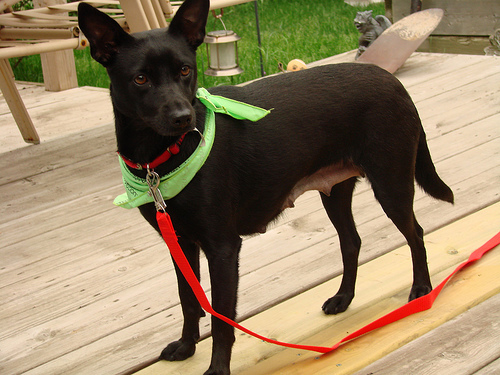 Guessing my dogs mix
Question
matilda
I was wondering if you could help what
Guessing my dogs mix
Question
matilda
I was wondering if you could help what
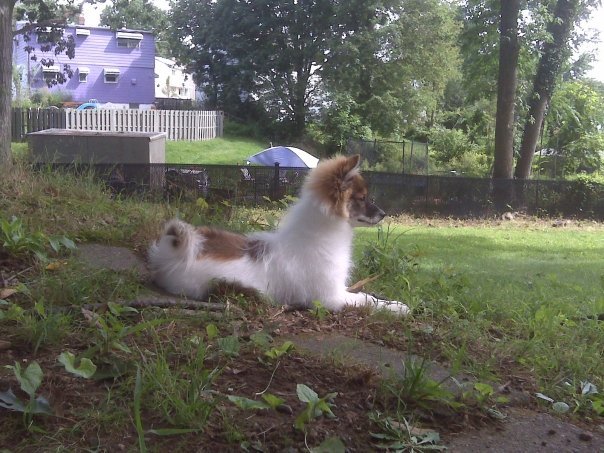 Not sure what my dog is
Question
Ella
I adopted my dog through a rescue s
Not sure what my dog is
Question
Ella
I adopted my dog through a rescue s
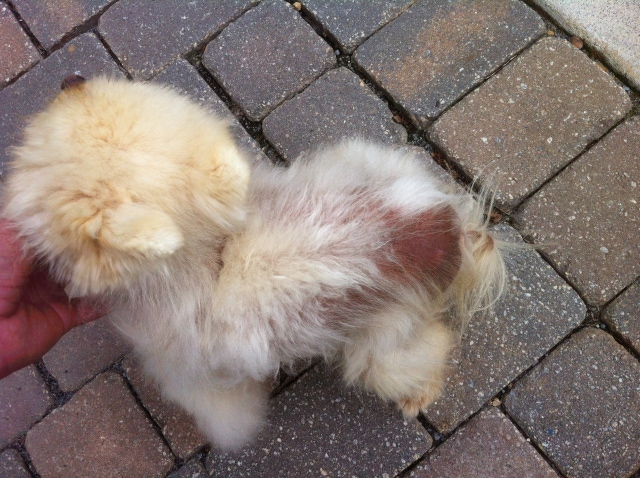 Hair growth stimulation
Question
Hairless Pom
A few years back I cut my
Hair growth stimulation
Question
Hairless Pom
A few years back I cut my
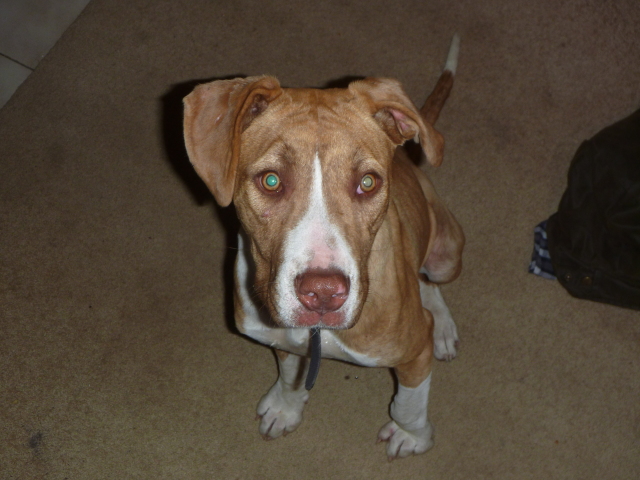 Malnurished Bull Mastif x Great Dane ;
Question
Sticks
Hi,
Ive recently, (the last 24 hours) b
Malnurished Bull Mastif x Great Dane ;
Question
Sticks
Hi,
Ive recently, (the last 24 hours) b
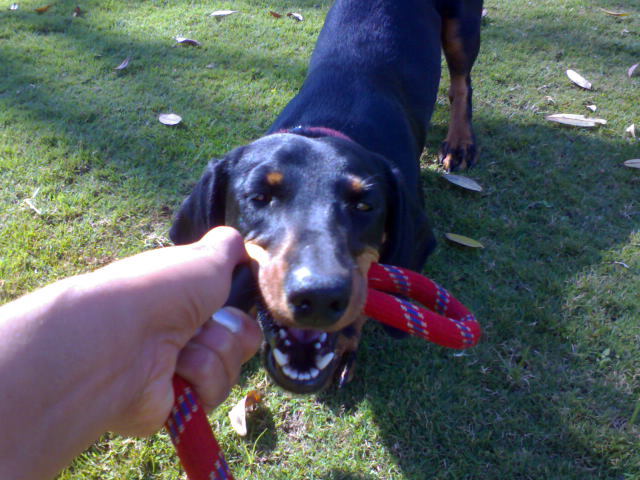 Dog unwilling to eat
Question
Maggie
I have a 4 year old daschund female.She
Dog unwilling to eat
Question
Maggie
I have a 4 year old daschund female.She